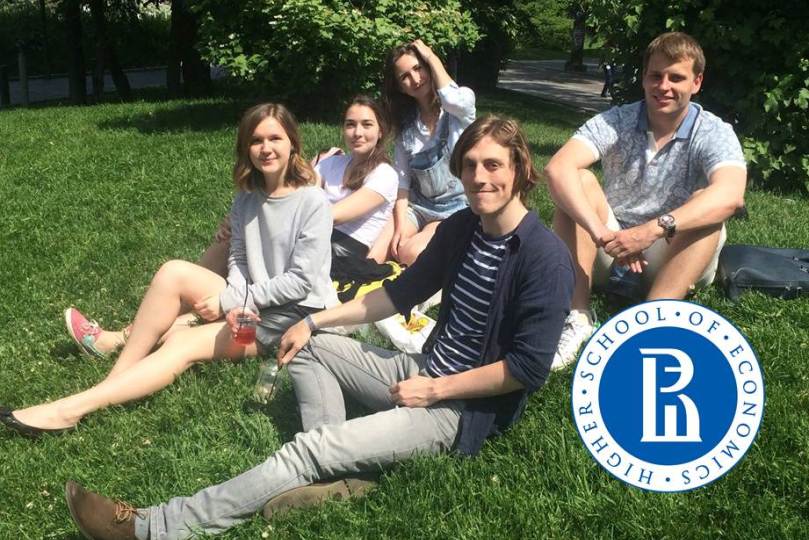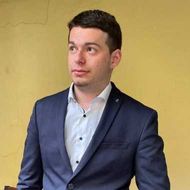- A
- A
- A
- ABC
- ABC
- ABC
- А
- А
- А
- А
- А
- HSE University
- Faculties
- Faculty of Social Sciences
- School of Psychology
- News
- Jon Rawski tells about two years at HSE and his future plans….
-
Education
-
The School
- About
-
Laboratories
-
- The Scientific-Educational Laboratory of Ability Psychology
- Center for Sociocultural Research
- International Laboratory of Positive Psychology of Personality and Motivation
- Laboratory for Cognitive Research
- Cognitive Psychophysiology Laboratory
- Vision Modelling Laboratory
- Laboratory for the Neurobiological Foundations of Cognitive Development
-
- Partners
- Staff Members
- International Cooperation
Phone: +7 (495) 772-95-90 *15366
Email: dekpsy@hse.ru
Address: 101000, Moscow, Armyanskiy per. 4, c2
Address for correspondence: 20 Myasnitskaya Ulitsa Moscow 101000 (School of Psychology)
In press
Popyvanova A., Pomelova E., Bredikhin D. et al.
IEEE, 2024.
Al Murshidi G., Adamovich K., Costley J. et al.
International Journal of Distance Education Technologies. 2025. Vol. 23. No. 1. P. 1-14.
W. Joseph MacInnes, Zhozhikashvili N., Feurra M.
In bk.: First International Conference, AIiH 2024, Swansea, UK, September 4–6, 2024, Proceedings, Part II. Artificial Intelligence in Healthcare. LNCS, volume 14976. Vol. 14976. Springer, 2024. P. 221-234.
Ivanova M., Germanova K., Petelin D. et al.
Biorxiv. 005140. Cold Spring Harbor Laboratory, 2024
The School promotes cutting-edge research, multidisciplinary studies, education in English. We are increasing the number of courses in English all the time and have started two English-speaking Master’s Programs. Our researchers have access to Eye trackers, TMS, multi-channel EEG, MEG and fMRI techniques.
The School also aims to train psychologists, who can apply their knowledge in the fields of economics, banking, human resources management, organizational development, ecopsychology and team-building.

Jon Rawski tells about two years at HSE and his future plans….

1. The first quality you need is obviously a love for what you are studying and a commitment to the academic process. If you are really dedicated to what you do it shows to universities and to really anyone you work with and talk to.
2. As part of that, you should really get involved in active research. Showing that you can be a part of the discovery process and actually do things shows you are not just absorbing information.
3. This allows you to develop solid relationships with your professors and people from other universities, the third important part. You should actively go to seminars, conferences, and summer schools and be aware of the community.
4. You shouldn't worry too much about whether a university is "the best" or "prestigious", because often prestige can be misleading. Focus on places where professors whose work you like are or where people are doing things you like.
5. Pay attention to language and test requirements. Some places are more strict or specific than others.
- Did two years at Higher School of Economics National Research University help you to enter PhD programme?
At HSE (Master’s programme 'Cognitive Sciences and Technologies: From Neuron to Cognition') I found a very willing and open environment, with enthusiastic professors and classmates who really wanted to commit to science and research, not just class. Everyone was willing to discuss, debate, and start new research whenever possible. I was able to take an extremely varied set of classes, and I had two invaluable internships, one in the HSE neurolinguistics laboratory, and the other in Paris at Ecole Normale Superieure. None of this would have been possible without the extreme care brought to the HSE program by everyone in it.
I have been extremely fortunate to be supervised by Boris Gutkin for the last two years. It's really a miracle at all that Boris and I came together (theoretical neuroscience and linguistics?), but it's turned out to be such a joyous experience because Boris really loves what he does and is the perfect supervisor, always willing to create every opportunity possible for his students. He has always encouraged me from the very beginning, both creatively and in work, to take challenging math courses and read books which completely pushed my limits, and to place me in contact with people I had never even imagined I'd meet. I learned what being a real scholar is by following his example, and it has helped me immensely.
- How to Apply for a PhD in the US?
It really depends on the country. In the USA, where I'm going, each university is inclusive, so there is less paperwork but it's expensive. Most universities require official transcripts, GRE scores, letters of recommendation, personal essays, and samples of research. The GRE is an expensive nightmare and has to be sent to each university. There may also be in-person interviews. In the EU, funding usually isn't attached to particular universities, which means more paperwork, but usually there aren't fees. It depends on the country though.
- What do you plan to investigate in your PhD project?
I am interested in the biology of language, or how linguistic computations are determined by human neurobiology. We commonly assume that human language is a kind of computation, and that neural groups in the brain function as a special type of biological computer. The problem is that neither of these two operations work exactly how we imagine computers working. What limitations does biological computation place on linguistic structure? How does this affect how children and adults learn languages? What consequences does this have for how we interact with machines? These are profound questions which are only beginning to be talked about.
Jon Rawski is a Master student at the Higher School of Ecomomics. He will attend a Ph.D. Program at the Department of Linguistics Stony Brook University, New York USA.
- About
- About
- Key Figures & Facts
- Sustainability at HSE University
- Faculties & Departments
- International Partnerships
- Faculty & Staff
- HSE Buildings
- Public Enquiries
- Studies
- Admissions
- Programme Catalogue
- Undergraduate
- Graduate
- Exchange Programmes
- Summer Schools
- Semester in Moscow
- Business Internship
-
https://elearning.hse.ru/en/mooc/
Massive Open Online Courses
-
https://www.hse.ru/en/visual/
HSE Site for the Visually Impaired
-
http://5top100.com/
Russian Academic Excellence Project 5-100
- © HSE University 1993–2025 Contacts Copyright Privacy Policy Site Map
- Edit


